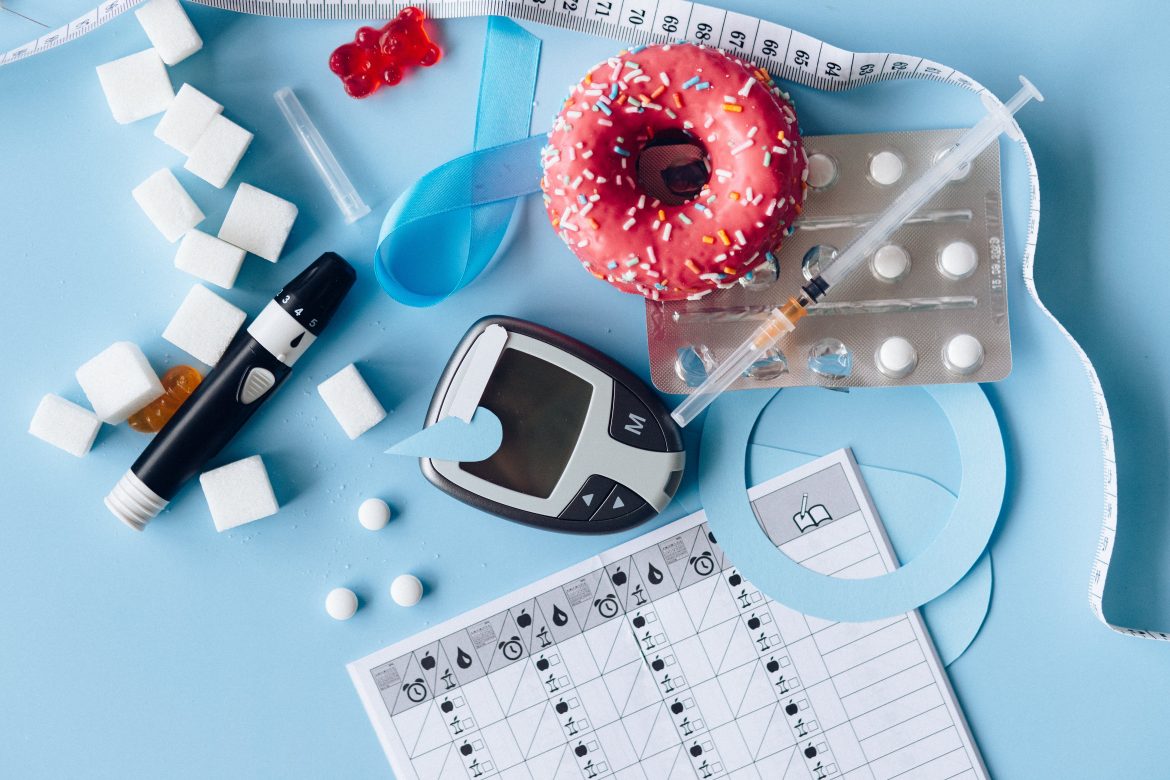Let’s delve into the intricacies of managing blood sugar levels to promote overall health and well-being.
Whether you’re managing diabetes or simply seeking to maintain stable energy levels, we’ve got you covered with actionable steps to help you on your journey.
What are glucose spikes, and why are they concerning?
Glucose spikes, also known as hyperglycemia, occur when there is a sudden and significant increase in blood glucose (blood sugar) levels. This phenomenon is particularly concerning, especially for individuals with diabetes, but it can also impact anyone.
Here’s why glucose spikes are concerning:
Prolonged or frequent spikes in blood sugar levels can have adverse effects on overall health. It is associated with an increased risk of various health complications, including cardiovascular disease, kidney problems, nerve damage, and eye issues.
During a glucose spike, individuals may experience symptoms such as excessive thirst, frequent urination, fatigue, blurred vision, and headaches. These symptoms can significantly impact daily activities and quality of life.

Image credit: Unsplash
For people with diabetes, glucose spikes pose a challenge in managing the condition. High blood sugar levels can interfere with insulin sensitivity and the body’s ability to regulate glucose effectively. This can lead to difficulty in achieving and maintaining target blood sugar levels.
The Risk of Hypoglycemia
Paradoxically, following a glucose spike, the body may release excess insulin to bring the elevated blood sugar levels back to normal. This can sometimes result in an overshoot, causing blood sugar levels to drop too low, leading to hypoglycemia. Hypoglycemia can be dangerous and is characterized by symptoms such as dizziness, confusion, and, in severe cases, unconsciousness.
Long-Term Complications
Consistently elevated blood sugar levels contribute to the development of long-term complications associated with diabetes. These complications include damage to blood vessels, nerves, and organs, increasing the risk of heart disease, kidney disease, neuropathy, and other health issues.
Impact on Energy Levels
Fluctuations in blood sugar levels can affect energy levels and mood. After a spike, individuals may experience a temporary surge in energy, followed by a crash, leading to fatigue and irritability.
Compromised Immune Function
Chronic hyperglycemia can weaken the immune system, making individuals more susceptible to infections and delaying the healing process.
To mitigate the concerns associated with glucose spikes, individuals are advised to adopt a healthy lifestyle, including a balanced diet, regular physical activity, stress management, and, for those with diabetes, consistent monitoring and adherence to prescribed medication and insulin regimens.
How to avoid a glucose spike
Maintain balanced meals and snacks to avoid glucose spikes
Maintaining balanced meals and snacks plays a crucial role in preventing glucose spikes and promoting overall health. Consuming a balanced diet helps regulate blood sugar levels by providing a steady and controlled release of glucose into the bloodstream.
Incorporating a mix of complex carbohydrates, healthy fats, and lean proteins in each meal helps slow down the digestion and absorption of carbohydrates, preventing rapid spikes in blood sugar. Additionally, including fibre-rich foods contributes to sustained energy levels and improved insulin sensitivity.

Image credit: Unsplash
Well-timed and portion-controlled snacks between meals can further help stabilize blood sugar, preventing the peaks and crashes associated with irregular eating patterns. For people managing diabetes, this balanced approach is especially vital in achieving and maintaining target blood sugar levels.
By prioritizing nutrient-dense, well-rounded meals and snacks, you can support your body’s ability to regulate glucose effectively, reducing the risk of hyperglycemia and its associated complications.
The Role of Carbohydrates in Glucose Spikes
The role of carbohydrates in glucose spikes is pivotal, as they are the primary macronutrient that directly influences blood sugar levels. When carbohydrates are consumed, they are broken down into glucose, leading to an increase in blood sugar.
However, not all carbohydrates are created equal. Simple carbohydrates, found in sugary and processed foods, can cause a rapid spike in blood glucose levels, as they are quickly digested and absorbed.
ALSO SEE:
What are healthy carbs? Plus, low-carb alternatives!
On the other hand, complex carbohydrates, present in whole grains, vegetables, and legumes, release glucose more gradually, providing a more sustained and controlled increase. Monitoring the type and quantity of carbohydrates consumed is crucial in managing blood sugar levels.
Individuals, particularly those with diabetes, can benefit from choosing complex carbohydrates, incorporating fibre-rich foods, and paying attention to portion sizes to help prevent sudden glucose spikes and maintain a more stable and balanced blood sugar profile.
It’s not about avoiding carbohydrates entirely but making informed choices to support overall health and blood sugar regulation.
By implementing these practical strategies and making informed choices, you can take control of your blood sugar levels and reduce the risk of glucose spikes. Remember, small changes can lead to significant improvements in overall health and well-being.
Here’s to a balanced and energized life!
ALSO SEE:
Feature image: Pexels

